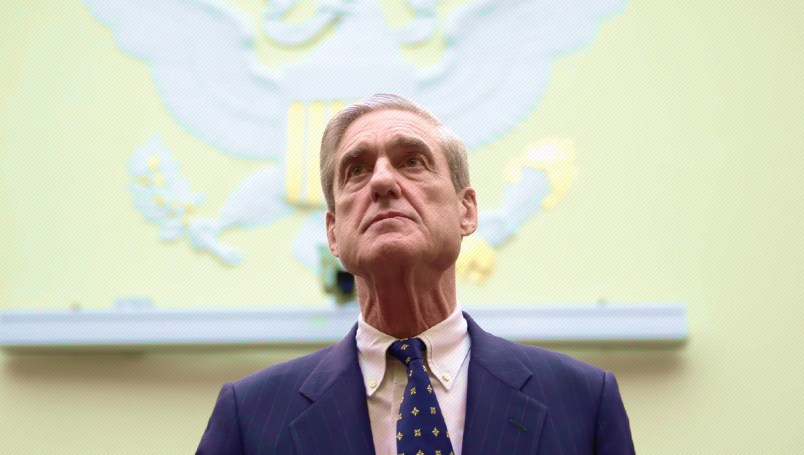A panel of federal appellate judges in D.C. handed down a decision on Friday in an obscure case dealing with grand jury materials that could spell trouble for House Democrats and others seeking to see the full, unredacted report from special counsel Robert Muller.
By a 2-1 vote, the D.C. U.S. Circuit Court of Appeals said that judges do not have the authority to approve the release of confidential grand jury materials, outside of the five exemptions carved out in the federal law governing grand jury secrecy. The circuit court will likely have jurisdiction over any cases dealing with grand jury materials in Mueller’s report.
Friday’s opinion was written by Reagan appointee Judge Douglas Ginsburg and was joined by Judge Gregory Katsas, a Trump appointee who previously served in President Trump’s office of White House legal counsel.
Obama-appointee Judge Sri Srinivasan wrote a dissent that pointed to the appellate court’s 1974 decision in Haldeman v. Sirica. Then the court upheld the decision of U.S. District Court Chief Judge John Sirica, during the Watergate investigation, to allow Congress to see the so-called “road map” put together by the grand jury investigating President Nixon.
Appellate courts in other circuits have ruled that the law’s list of exemptions is not an exclusive one, and that judges have the authority to release the materials for reasons not explicitly outlined in the law.
The case decided on Friday had to do with a 2013 request by a historical author to see grand jury materials from an investigation that was the subject of the book he was working on. The district court ruled against the author’s request because of its specific circumstances, but said, in general, judges have the inherent ability to OK the release of grand jury material, meaning that they could do so for reasons other than the law’s exemptions.
The case was appealed to the circuit court, where the Justice Department opposed the conclusion that judges had that inherent authority, and the case was argued in front of the appellate panel in 2018. On Friday, the appellate court said that it agreed with the Justice Department’s argument.
If the opinion is allowed to stand, it would shut off one of the legal avenues House Democrats have in requesting the release of grand jury material. Attorney General Bill Barr has told Congress he plans to hold information in the report covered under the grand jury secrecy law, and he has not committed to seeking a judge’s permission to release them, according to Democrats.
The grand jury secrecy law lays out five specific examples where grand jury materials can be disclosed to outside parties. Only one of those examples seems like it could apply to the House Judiciary Committee’s quest for the materials in Mueller’s report, legal experts told TPM earlier this week.
That exemption allows for the release of the materials “preliminarily to or in connection with a judicial proceeding.” However, some legal experts were skeptical that the committee’s current situation could meet that exemption, particularly since the committee has not launched formal impeachment proceedings against President Trump.
Under Friday’s decision, a judge would not be able to order the release of materials unless the committee can convince him or her that their general oversight probes into President Trump meet the definition of “preliminarily to or in connection with a judicial proceeding.”
Read the opinion below:






